Introducing Lana Shields: A Journey of Passion and Community Service
Lana Shields is a dedicated and passionate individual whose career journey is a testament to resilience, adaptability, and a deep commitment to community service. Of Samoan descent, Lana has navigated various roles, from hospitality to administration, always driven by her desire to connect with and help others.
Lana’s career began in hospitality and administration, where her exceptional people skills quickly made her a frontline person. Despite the traditional expectations of her era, Lana’s aspirations evolved as she realized her need to be around people and make a tangible difference. This realization led her to explore diverse career paths, including a significant stint in the UK, where she discovered her creative side and successfully ran her own hair salon.
Her entrepreneurial spirit and drive to support her family saw her navigating the challenges of business ownership with determination and innovation. Lana’s ability to adapt and learn new skills, particularly in technology and business management, has been a cornerstone of her professional growth.
A pivotal moment in Lana’s journey was her involvement with the City Mission, where she set up an education program for the homeless. This role allowed her to leverage her extensive network and relationship-building skills to provide essential services and support to those in need. It was here that Lana truly found her calling, realizing the profound impact she could have on her community.
Lana’s story is also marked by her advocacy for the Pacific and rainbow communities. Her lived experiences and personal connections have fueled her passion for supporting and representing these communities, using her voice and skills to drive positive change.
Today, Lana continues to make a difference through her work, combining her diverse skill set with a heartfelt commitment to helping others. Her journey is a powerful reminder of the importance of resilience, continuous learning, and the impact one person can have on their community.
The six pou of Mata Ārahi Manomano drive the questions we have used to profile Māori & Pacific role models, in the Service sector.
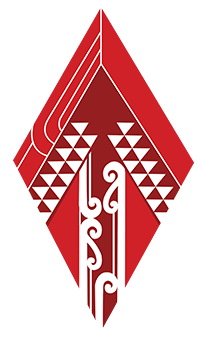
|
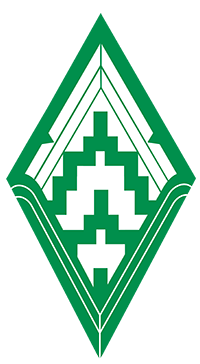
|
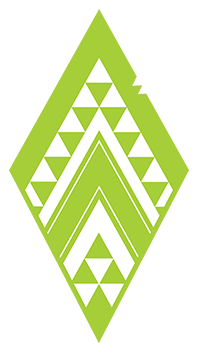
|
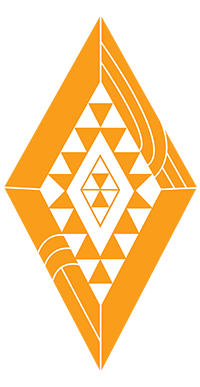
|
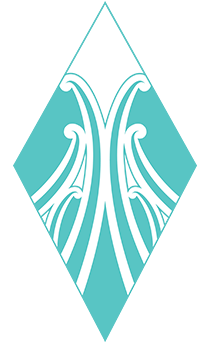
|
|

Representing the levels and forms of aroha that can be found throughout our lives across our many communities. We acknowledge the wide range of obstacles and the journey it takes to overcoming everything that stands in our way to expressing aroha within.
M y name is Lana Shields, and I am of Samoan descent. I have two adult daughters and two grandchildren.
I’m privileged in the fact that I am Afakasi, being Samoan and Palagi. So I get to walk in both worlds, which I actually see as a privilege and a strength. Another strength is that I am a relationship person. I’m a prolific networker, always networking no matter where I am, whether it be work, home, or pleasure.
I love connecting people. Whenever I hear of anything great happening, I want to pass that on. And if I ever hear of anyone that needs help, I want to connect them to someone who can help. I have no shame, so I will just straight out do it without being embarrassed, asking people and saying, “Can you help this person?” I’m happy to be the middle person that softens the blow in telling a story or passing on information.
I also believe that, especially when you’re advocating for a person who has experienced trauma or has strong feelings about something, I’m happy to filter it through so they don’t have to tell their story more than once. So, yeah, I feel that a strength of mine is building relationships and connecting with people in all the different worlds out there.

Seeking guidance from our kaitiaki Hiwa-i-te-rangi, we take a journey through our different aspirations, goals and dreams. This tohu acknowledges hard work, wisdom, the reach of ones goals and the desire that comes from this mahi.
In the old days, because I’m of a certain age, you know, you went to school and you did typing, and you were going to be a receptionist or a typist or study home economics and all those kinds of really strange subjects. So I did the typing and ended up doing administration work. But because of my people skills, I was always a receptionist rather than behind the scenes, always the frontline person. And I thought that was it for me.
Throughout my career, I’ve always wanted to be around people, so those skills took me into many different jobs. My aspirations were to get married and have a baby because I’m from that era as well, and to be a housewife. I didn’t have any career aspirations; I just wanted to be a good mother and a good wife. But I soon realized that I needed to be around people.
I’ve done a whole lot of different types of careers, but always front-facing. Over time, I’ve built up these transferable skills, with the baseline being administration. Over the years, I’ve picked up all the different technologies, which hasn’t been easy as you get older, but I’ve enjoyed it because I knew it was an important part of my work.
I never wanted to be in a leadership role but always ended up getting pushed into it because of the skills I had. People would pick up on them and say, “You need to be leading a team. You’ve got the relationship skills.” But it took me until my 50s to realize I don’t want to be a leader. I don’t want to be the front person; I want to be the person behind the front person, supporting them.
Even though I had all these skills and my personality, I realized that a lot of it came from my upbringing. Being Samoan, we learned to be very humble. Being in the limelight was not for me, as much as I wanted to be the voice and pass on information. I was only happy doing that one-on-one, not in front of an organization or a group of people.
So, yes, I had a career and aspirations, but no specific aspirations. I just worked my way up and ended up where I am. At one stage of my life, I thought I could chase that 100K salary, but I realized at a certain age that it’s not about money. It’s about work-life balance and enjoying what I do, being able to afford the other things while still having that balance and enjoying my home life as well as my work life.

With adventure comes challenges as well as obstacles to overcome. We stand proud as we overcome these obstacles. This tohu draws inspiration from the Niho Taniwha and Aramoana patterns. We acknowledge reaching our destination and preparing ourselves for the many new adventures ahead.
I’ve been in hospitality, and at a young age, I had a very interesting job as a receptionist for a plastic surgeon. What was really funny was that we could get anything we wanted done for free—liposuction, breast augmentation, all that kind of stuff. But I was 18 and thought, “I don’t need any of that stuff. I’m sporty and all that.” I wish I was working there now! It was a real eye-opener because I thought all the rich people would come to get their stuff done. It wasn’t; it was just people who were unhappy with the way they looked.
For example, a housewife who had saved for 10 years, putting aside her pocket money, would come in to get something done. That was a really interesting job.
At the age of 21, I moved to the UK with my ex-husband, who was my husband at the time. I was a bit lost because we went there for his career, and I was like, “What am I going to do?” So, I worked in a pub, doing easy jobs. After I had my children, I thought, “I’ve got to do something different.” I started working in a hair salon, brushing the floors and shampooing people. I thought it was great because everyone just wanted to gossip and chat. I kind of lost my identity a little bit because I was in the shadow of my husband, who was a professional rugby league player. When I went to the hair salon, everyone wanted to know about me, so I thought, “This is cool.”
Then I realized I had a creative side that I didn’t think I had. I could put the perm rollers in and do the blow-dries. So, I went to college, trained up, became a hair stylist, and within two years, I had my own salon.
I had the salon for five years, but I got really bored just doing the same little old ladies on Saturdays. I kind of lost my creativity a little bit. But I gained all the skills of running a business. I took on technology, got the latest system for my salon to take appointments, and did everything properly. Because I did that and looked professional, I was able to charge higher prices.
I was actually working six days a week—three days at the salon and three days teaching. I then moved away completely and taught at training providers. I moved on to another training provider that offered a lot of different apprenticeships. I ended up being the manager of that school. I transitioned from being a hairdresser to taking over the administration. They also put me through a lot of different courses, which was great. I kept chasing my skills and improving.
Then I came back to New Zealand after being away for 26 years. I had all this UK experience and thought I should be able to get a job, but it was really hard because my qualifications weren’t recognized here unless I redid stuff. So, I worked at the local polytechnic in the call center, which I found amazing because it was the central nervous system of the whole polytechnic. I got to know every course, how to get on every course, and what skills were needed.
I learned about the whole education system. I didn’t stay there long because I’m a quick learner. I moved into the Business School as an administrator, then started learning more about the business degree. I got to know a lot of different international students and their cultures, which was cool. I then moved into business development, selling educational courses to the community and corporates. It was hard to sell because people have to be ready for it, but I was the top seller.
One of my portfolios was community, so I started going around to NGOs and asking what they needed. That was my turning point. I realized I wanted to help my community. I was happy helping students and corporates, but I wanted to choose my community and help them in particular. I ended up getting headhunted by the City Mission to set up an education program and a whole education unit from scratch for the homeless, with no budget. I utilized all my networks to get free computers, volunteers to teach, and people from the polytechnic to help out.
It was a fantastic job and gave me a great sense of purpose. It was great for my well-being, knowing that I was doing good for the community. My community is not homeless, but I realized my community is multifaceted. I could see the grassroots needs. I felt I was in a position where I could choose what I wanted to do and where I wanted to go.
Eventually, I came here to one of our organizations. It started as a part-time role, setting it up as a charity and building the organization while working full-time until I could get the funding to take on the role full-time.
To answer the question, getting to know myself and realizing what my skills were has been a journey. It’s only on reflection that I see I’ve always been about people and wanting to help them.

These patterns represent bravery and being strong in the face of adversity. We strive to be persistent and positively challenge anything that threatens to alter, restrict, and put a barrier in the way of our desired pathway.
Yeah, and I think, yeah. And then you just feel like you’re not just going in and earning a wage. You’re actually making a difference. I saw people around me who were saving the planet and doing all these different things. I was just like, what can I do that’s actually tangible, where I can see a difference? It was just hearing different people’s stories as well and thinking there were so many things, especially from the City Mission, that were so simple to me but so hard for others.
When I say simple to me, I mean simple to access because of my networking and relationship-building skills. I didn’t realize that not everyone has that. So, yeah, little things I could help with were just so rewarding.
For example, someone not being able to use an app on their phone to pay their power bill had literally been at the cinema machine for three days. They kept staring at the phone, and I was like, what’s the issue? They said, “Oh, I can’t pay my bill because I can’t get the app working or something, so I’ve been coming in here and using your power every day because I’ve got none at home.” I was just like, wow, and all I needed to do was push a button and change their password. But they were fretting over it. They had asked someone twice, and it didn’t comprehend. They basically needed a different type of learning, like “I’ll show you, not tell you,” or the person made them read something, and it just didn’t click with them.
I’m that type of learner as well. I have to be shown or watch a video. Anyone who gives me written instructions, it just goes out the window. I switch off. So I can relate to so many people about that different type of learning in their normal life, not necessarily in an educational environment.
Then I got asked when we decided to start up the Moana Bar to come along to a meeting with a whole lot of other Pacific people who felt safe and had some kind of connection to the rainbow community. At this meeting, they were talking about the person they had found and were saying that they were meeting young people through Sunday school and could see their rainbow identity. They were thinking, what sort of support are they going to get because of the challenges with religion, culture, and the rainbow identity? I was sitting there, and people were telling their stories. I was like, what am I doing here? I straight away thought it must be for my admin skills or organization skills. They need someone to do the minutes or something.
Then I was reminded, which is ridiculous, that my uncle is a very prominent figure in the community and was fighting for the homosexual law reform and was part of the AIDS Foundation. Also, my daughter is gay. I just saw them as people. I didn’t think about their sexual identity, and I didn’t think about the challenges they had either until we started meeting monthly. Then I realized I could really help in this area from the lived experience point of view of bringing up my daughter and the challenges she’s had growing up.
That made me realize I can really make a difference here. I’ve got the lived experience, and I’ve always felt connected to the Pacific community. I have the lived experience of having a Samoan mum, but not everyone believes it because I have a white face. I thought, I’m going to push for the fact that I’m Pacific and I don’t look like it. I also know about the rainbow community, even though I don’t look like that either. I realized that I could still get messages across, advocate, represent, and support those through my relationship skills. If you’re talking from the heart, people are convinced when you’re genuine.
I get it all the time. You know what it’s like with our own people, where they just go, “Oh, what is this spelling?” And I go, “Well, actually, I do know.” My kids are Samoan as well, so I’ve got that connection. My husband’s Samoan too. Talofa!

Here we are drawing inspiration from the Pūhoro pattern. The pūhoro is used here to represent the strength, speed and agility needed to move forward and accomplish ones goals.
I always think about that work-life balance because when you’re doing a job that comes from the heart for your community, you can burn out because you just want to give, give, give. It’s really important to keep in mind that balance and to look after yourself if you want to look after others. This applies to many careers, even in hospitality when you’re serving a community or customers. It’s the same—look after yourself first.
Think about your transferable skills. I often sit with young people doing their CVs, and they just name a couple of things. You have to really draw out what they are actually doing and then find out they’ve got all these extra hobbies and cultural activities, like organizing weddings and White Sundays. There are skills in those activities as well. It’s really about thinking about what you bring to the table and selling yourself when you go for a job with those diverse experiences.
Consider the diversity you have within your culture and your background. This includes your education and the side clubs you were in and the roles you played there as well.
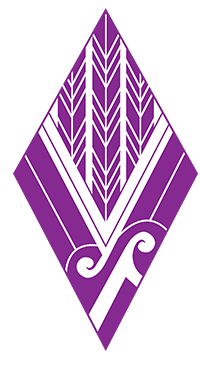
Success, best mentioned in the whakatauki “Tūwhitia te hopo, mairangatia te angitū!” Feel the fear and do it anyway!
I just think whatever doesn’t kill you makes you stronger. I always look at what might be seen as a failure and change that mindset to see it as a lesson learned. What did I learn from that, and how can I improve rather than give up? How can I improve or move into another area utilizing what I’ve learned? I don’t like the word failure. I never use that word, and I’ve had plenty in my life, including a failed marriage. Reflection is a great thing, and working on taking steps to improve is important. Don’t be afraid to ask for help, whether it’s physical, tangible help or going back and reeducating yourself in a different area or direction but still gaining skills.
Owning my own salon was a big one for me. I look back now, and when people say, “Oh, you’re a business owner,” I never saw it that way. I just thought it was another job. When people say, “You’re brave,” I realize they mean they would never want to take that kind of risk. They would rather turn up to a job and be paid a wage by someone else. Owning my salon taught me so much and gave me drive. When I wasn’t making enough money, I had to think about how to attract more customers. My drive was my children. They needed school care, and I needed money for that, so I would put on specials and work weekends to make ends meet. It was about finding ways to increase my income without begging for a promotion.
People often ask how I could work for someone else after owning my own business. I learned a lot from that experience, and I have no problem taking direction from others. I’m always learning, and if I have the right bosses, they can learn from me and value me. I never had a problem transitioning from owning my own business to being employed. You just pivot to whatever the economic situation is and utilize your skills. Stay positive.
I’ve recently done a few courses, like StrengthsFinder, which changed my life. It teaches you to focus on your strengths, and as you do, you forget about your weaknesses. I found myself doing things I thought I hated and thought were weaknesses, but they came naturally because I was focused on my strengths. This made all the difference. I’ve always loved going on courses and learning new things, but it’s important to choose the right courses. A community leadership course I took was very different from any corporate training. It focused on me as a person, which I loved.
Now, I’m in a position where I write to funders and tell them my value to get paid. I’m actually in my dream job because I get to utilize all my skills in different areas. I’m writing funding applications, organizing events, and emceeing events. The variety in my job keeps me from getting bored. It’s about meeting different people daily, hearing their stories, and finding ways to help them.
I don’t have a degree, but I’ve done many certificates and diplomas. In the corporate world, they expect a degree, but I hope they can see my experience. I love the concept of micro-credentials, where you can do little bits that add up. My sister did a degree through prior learning, pulling everything together from her career and presenting it.